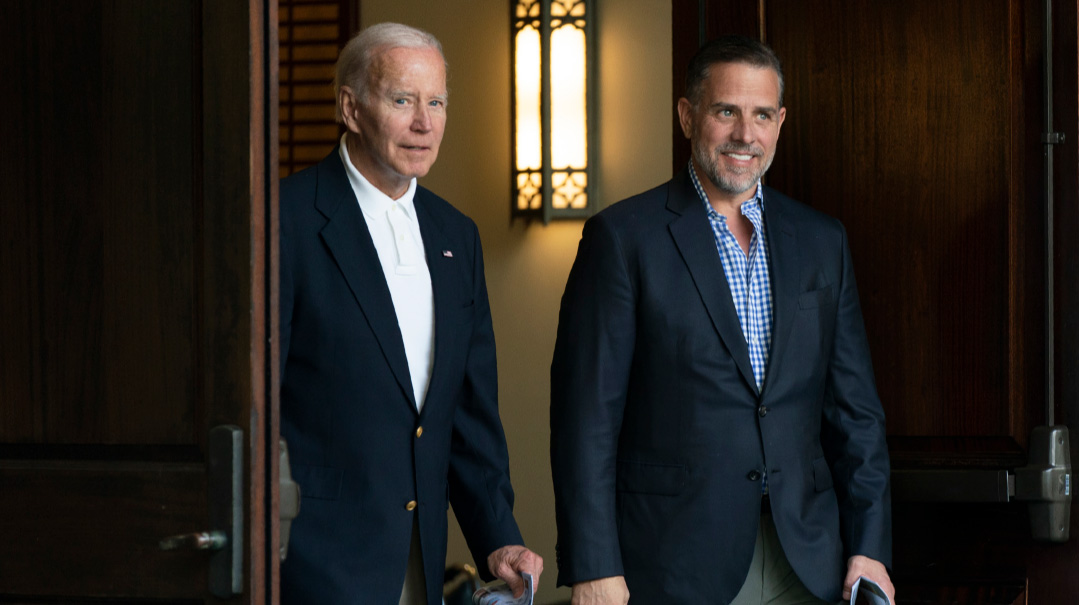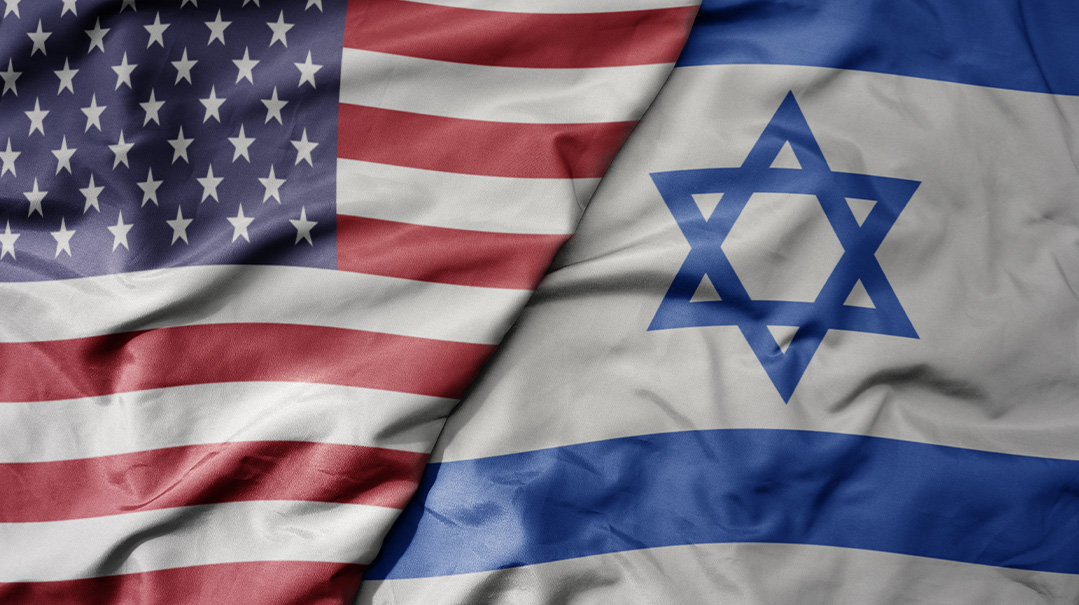Beware the Censorship Industrial Complex

Why it is so crucial that plaintiffs prevail in Missouri vs. Biden
One of the potentially most consequential lawsuits ever is currently being litigated in a Louisiana federal district court. The attorneys general of Missouri and Louisiana and a number of private parties have brought suit against President Joseph Biden and a host of federal agencies, seeking an injunction against government collusion with Big Tech social media platforms (SMPs) to abridge Americans’ First Amendment rights.
Plaintiffs’ theory of the case is that government pressure on the SMPs, and the close nexus of interrelationships between government agencies and the SMP platforms, effectively turned those platforms into agents of the government, and thus made them subject to the strictures of the First Amendment against governmental infringement of speech. Effectively, the government was censoring through tech companies what it could not censor directly.
Much of the information upon which the suit is predicated only became known after Elon Musk purchased Twitter and released millions of Twitter internal documents and communications with government agencies to independent journalists Matt Taibbi, Michael Shellenberger, Bari Weiss, and David Zweig. The resulting Twitter files reveal, in Shellenberger’s words, a “censorship industrial complex.” According to Taibbi, the Twitter Files “show the FBI acting as doorman to a vast program of social media surveillance and censorship.”
The major social media companies were deeply intertwined with multiple government security agencies. In the period prior to the 2020 election, for instance, Twitter’s head of Trust and Safety, Yoel Roth, met weekly with officials of the FBI, Department of Homeland Security (DHS), and the Office of the Director of National Intelligence. Elvis Chan, a special agent in the FBI’s San Francisco office, offered top Twitter officials national security clearance, so they could more efficiently deal with the deluge of FBI requests for action. James Baker, former FBI general counsel and subsequently deputy general counsel at Twitter, boasts in one email of a $3.5 million payment from the FBI to Twitter for time spent processing FBI requests.
The tech companies were highly vulnerable to pressure to comply with government requests. Section 230 of the Communications Decency Act provides tech platforms with immunity from suits for content from outside providers. Democratic lawmakers were not abashed about threatening removal of that protection if the SMPs slackened in their censorship of “disinformation.” In addition, the companies were vulnerable to antitrust suits brought by the Justice Department. And finally, when leading journalists produced scare headlines about the Internet being rife with Russian trolls, based on leaks from various security agencies, the tech platforms faced pressure from their own employees to take action.
Plaintiffs’ brief in support of the requested injunction Missouri vs. Biden begins with a number of analogies to what has taken place between 2017 and the present. First, suppose the Trump White House, backed by Republicans controlling both Houses of Congress, publicly demanded that all libraries in the United States burn books criticizing the president, and the president made statements implying the libraries would face ruinous legal consequences if they failed to comply. And suppose further that after months of demands from libraries for detailed lists of the books they had burned, the libraries complied with those demands.
Next, suppose the FBI started sending the libraries detailed lists of the books it wanted burned, and the libraries complied by burning half those books and supplying the FBI with detailed lists of the books burned. .
Finally, suppose that federal national security agencies teamed with private research institutions, backed by enormous resources and federal funding, to establish a mass surveillance and censorship program that uses sophisticated techniques to review hundreds of millions of Americans’ electronic communications in real time and work closely with tech platforms to covertly censor millions of them. Unlike the preceding two paragraphs, that is not even an analogy, but a straightforward description of the Election Integrity Partnership (EIP), more about which later.
United States District Judge Terry A. Doughty denied the federal government’s motion to dismiss the lawsuit, finding that the complaint alleges significant encouragement and coercion that converts the otherwise private conduct of censorship on social media platforms into state action. In addition, he found that discovery in the lawsuit “unequivocally establishes that at least eleven federal agencies and sub-agencies, including CDC and DHS, directed social media companies to censor viewpoints that conflict with the federal government’s messaging [on a wide range of topics].”
At one point in the proceedings, Doughty asked government attorneys whether they had read George Orwell’s dystopian novel 1984 and his description of the Ministry of Truth, which maintains exclusive control over what information citizens are allowed to hear or see. Doughty asked a government attorney whether the First Amendment protects the statement that President Biden is responsible for high gas prices and inflation. The attorney could muster a response no better than, “It depends.” Same answer to the statement that the 2020 election was stolen.
The Censorship Leviathan
In a very long and thoroughly chilling article, “A Guide to Understanding the Hoax of the Century” (Tablet, March 29, 2023), Jacob Siegel analyzes the genesis of the multibillion-dollar government-private sector censorship regime that is the subject of Missouri vs. Biden. Siegel lays bare “the synergy of state and corporate power in the service of the tribal zeal [of America’s ruling class] that is the hallmark of fascism.”
Once created, the censorship leviathan developed an insatiable appetite for expansion. Expansion in the topics of “disinformation”: An August 2022 FBI memo, for instance, contained a long list of newspapers, tweets, and YouTube videos deemed to be voicing “anti-Ukraine narratives.” Expansion in the focus of the censorship regime, transforming from seeking to uncover foreign terrorists to helping one party retain domestic political power. And expansion in the scope of its ambition to include altering the “cognitive infrastructure” of American citizens deemed to have dangerous political tendencies.
That term, “cognitive infrastructure,” was coined by Jen Easterly, head of the DHS’s Cybersecurity Infrastructure Security Agency (CISA). In February 2021, DHS announced additional funding for “preventing domestic terrorism [through] attitudinal inoculation.” The layman’s term for “altering cognitive infrastructure” or “attitudinal inoculation” is “brainwashing.
The CIA and the Steele Dossier
The immediate precipitating cause for the development of the public-private censorship complex was Hillary Clinton’s claim, in the immediate wake of her shocking 2016 defeat, that she had lost because of Facebook. That claim was echoed by President Obama when he publicly denounced “the spread of fake news on Facebook.” After first rejecting the charge as “pretty crazy,” Facebook’s Mark Zuckerberg capitulated to outraged employees accusing him of putting a Putin agent in the White House, and Facebook announced a “new push against fake news after Obama’s comments.”
The Clinton-Obama blaming of Facebook was nonsense. Even the Washington Post quietly published in its cybersecurity newsletter of January 9, 2023, the conclusion: “Russian trolls on Internet had little influence on 2016 voters.” Moreover, both Clinton and Obama knew the claim was a feeble excuse for a historically inept campaign and an unsympathetic candidate.
As Clinton knew, the primary source for the Trump-Russian collusion campaign was her own campaign coffers, in the form of the completely debunked Steele dossier, a collection of unsubstantiated claims about Trump compiled in 2016 by an ex-British intelligence agent. And Obama had been briefed by CIA director John Brennan about intelligence on the Clinton campaign’s efforts to link Trump and Russia.
That, of course, did not prevent Brennan from creating an intelligence community assessment (ICA) on “Russian Activities and Intentions in Recent Elections” that concluded, “Putin and the Russian government developed a clear preference for President-elect Trump,” which he then released to the press. For good measure, the ICA included the debunked Steele dossier, against the advice of numerous other intelligence agencies.
The ICA was exclusively the product of five handpicked CIA officers and authored by a close friend of Brennan’s. It flew in the face of the conclusions of senior CIA analysts with a lifetime of experience working on Russia, whose assessment was that Putin counted on Clinton winning the election.
Hamilton 68 and Twitter
The claim of Russian collusion on Trump’s behalf hamstrung his presidency from the start. And it served as the predicate for other unprecedented government actions with far-reaching consequences. In one of the final acts of the Obama administration, outgoing Secretary of Homeland Security Jeh Johnson declared 8,000 US voting systems, which had always been under the authority of the states, to be “critical national infrastructure” and henceforth under the central authority of the DHS.
Later, in 2018, an outfit called Hamilton 68 flooded the Internet with news of 2,700 Russian trolls on SMPs. It was the progressive version of Senator Joseph McCarthy’s list of 57 Communists working at the State Department. Yoel Roth, Twitter’s director of Trust and Security, was quickly able to ascertain that Hamilton 68 was a hoax — no more than two on the list could have been Russian trolls, and one of those was Russia Today, an openly Russian-backed news outlet — and briefly considered exposing it.
But Emily Horne, a senior Twitter executive newly arrived from the State Department, where she had worked on countering ISIS on digital media and who would soon return as a spokesperson to the National Security Council under President Biden, counseled against angering the neo-liberal think tank Alliance for Securing Democracy, which was behind Hamilton 68.
In the face of threats from Democrats in Congress and bad press, Twitter decided that discretion was the better part of valor and went along with the official narrative that it had a Russian problem.
Matt Taibbi described how this cycle of “threatened legislation wedded to scare headlines pushed by congressional/intel sources, followed by Twitter caving to content moderation asks [came to] be formalized in partnerships with federal law enforcement.”
The Election Integrity Partnership
Besides the national security agencies — e.g., the FBI, CIA, CSIS, et al — and the SMPs, private think tanks, many of them partially funded by the government and high-profile political actors, such as George Soros and Reid Hoffman, a billionaire Democratic Party fundraiser, came to play an increasingly large role in the disinformation complex.
Perhaps the largest of these was the Election Integrity Partnership affiliated with Stanford University. The EIP served as the “government’s deputized domestic information flagger,” according to Michael Shellenberger. EIP head Alex Stamos explained that it was able to do what the government lacked “legal authorizations” to do.
Based on the reporting of DHS’s own partners, the scope of the censorship efforts of EIP and DHS’s other partners is breathtaking: 22 million tweets labeled “disinformation” on Twitter; 859 million tweets collected in databases for “misinformation” analysis; hundreds of millions of Facebook posts, YouTube videos, TikToks, and tweets affected by changes in Terms of Service policies at SMPs, which would never have been undertaken without DHS partner insistence and “huge regulatory pressure” from the government; and an average response time of one hour between government partners and tech platforms.

A Success: Suppression of Hunter’s Laptop
The disinformation complex has many notable failures to its credit: suppression of the COVID-19 lab leak theory, now almost universally acknowledged to be true; the suspension from Twitter of former New York Times reporter Alex Berenson for writing that an mRNA anti-Covid vaccine neither prevented infection nor transmission, something admitted by the FDA’s own medical advisor at the time; and the attempts to shut down all debate about the cost-benefit analysis of various responses to the pandemic, even when offered by respected Stanford and Harvard professors.
But the real “triumph” of the censorship regime — one which likely determined the result of the 2020 presidential election, which was ultimately decided by just over 40,000 votes in three states — was the effort to shut down the New York Post story about Hunter Biden’s laptop prior to the election.
The laptop was not just primarily of prurient interest due to the younger Biden’s degenerate lifestyle — which, if the laptop was discussed at all in the mainstream media, is how it was usually reported. Rather, it should have been a key piece of evidence in a devastating exposé that shook up the campaign in the closing days, because it detailed how Hunter was raking in millions from an obvious influence peddling operation, about which his father clearly knew, despite his ardent denials as a presidential candidate.
Tony Bobulinski, a recipient of one of the emails and a former partner of Hunter’s, testified that the “big guy,” who was supposed to receive 10% of a deal between a Chinese company closely affiliated with the ruling Communist Party and Hunter, was none other than the former vice president and then presidential candidate. (We will leave to another day the story of how the Biden campaign enlisted 51 senior intelligence officials, on short order, to claim that the laptop story bore the earmarks of Russian disinformation, despite the absence of any denial of ownership from Hunter.)
The night before the New York Post ran its first story, FBI Special Agent Elvis Chan sent ten documents to Yoel Roth via a one-way communication channel previously established. Chan had long been priming Roth to view the laptop materials as the result of Russian hacking and had been doing the same with Facebook.
And it worked; the New York Post reporting was banned on Twitter and Facebook and fell largely stillborn from the press. Yet the FBI had had possession of Hunter’s laptop since 2019, and presumably knew that it was real and that the Post’s reporting was accurate, not disinformation.
Cheering the Deep State
One of the most disturbing points of Jacob Siegel’s Tablet article is his demonstration that the contempt for free speech and open discussion did not begin with the current generation of university students, but is shared by much of the ruling class. At least when the suppression of free speech and debate is in the service of a good cause.
A host of articles and books by prominent journalists and public intellectuals have celebrated the successful efforts by the Deep State to save American democracy through a conspiracy to rig the 2020 election. First out of the gate was Molly Ball in Time magazine, who wrote that Biden’s victory was the result of a “conspiracy unfolding behind the scenes,” which “successfully pressured social media companies to take a harder line against disinformation... to fight viral smears.” She was followed by national security analyst David Rothkopf, who penned a book, American Resistance, with the unlikely subtitle The Inside Story of How the Deep State Saved the Nation.
Prominent atheist and self-proclaimed truth-seeker Sam Harris acknowledged that censorship of Hunter Biden’s laptops amounted to “a left-wing conspiracy to deny the presidency to Donald Trump.” And that was a good thing, according to Harris. Hunter Biden could have had corpses of children in his basement, Harris told interviewers, “And I would not have cared.” Presumably he felt the same way about Biden family corruption. Because Trump’s re-election was comparable to “an asteroid hurtling toward Earth.”
In truly Orwellian inversion, Robert Reich, Bill Clinton’s labor secretary, described Elon Musk’s dream of preserving free speech online to be Trump’s dream as well. And Putin’s. And the dream of every dictator. Censorship, Reich proclaimed, is “necessary to protect American democracy.”
Much of that censorship was justified as necessary to prevent American institutions from falling into disrepute and preventing social discord. Yet nothing could have done more to discredit America’s law enforcement and intelligence services and to fuel the populist anger of the Trumpkins whom they so despise than their pervasive involvement in crucial political debates and efforts to sway the results of an election. In so doing, America’s intelligence agencies did more harm to the country they pledged to defend than any external enemy could have.
And that is why it is so crucial that plaintiffs prevail in Missouri vs. Biden.
(Originally featured in Mishpacha, Issue 965. Yonoson Rosenblum may be contacted directly at rosenblum@mishpacha.com)
Oops! We could not locate your form.







